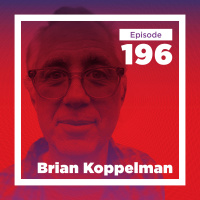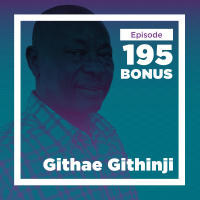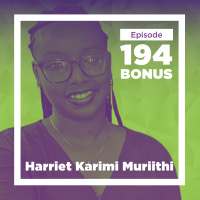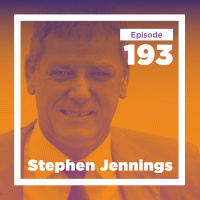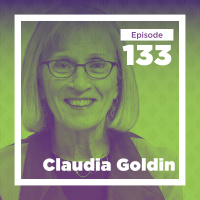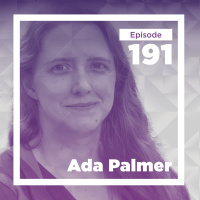Synopsis
Tyler Cowen engages todays deepest thinkers in wide-ranging explorations of their work, the world, and everything in between. New conversations every other Wednesday. Subscribe wherever you get your podcasts.
Episodes
-
Jonathan Haidt on Adjusting to Smartphones and Social Media
03/04/2024 Duration: 59minIn The Anxious Generation, Jonathan Haidt explores the simultaneous rise in teen mental illness across various countries, attributing it to a seismic shift from a "play-based childhood" to a "phone-based childhood" around the early 2010s. He argues that the negative effects of this "great rewiring of childhood" will continue to worsen without the adoption of several norms and a more hands-on approach to regulating social media platforms. But might technological advances and good old human resilience allow kids to adapt more easily than he thinks? Jonathan joined Tyler to discuss this question and more, including whether left-wingers or right-wingers make for better parents, the wisest person Jonathan has interacted with, psychological traits as a source of identitarianism, whether AI will solve the screen time problem, why school closures didn't seem to affect the well-being of young people, whether the mood shift since 2012 is not just about social media use, the benefits of the broader internet vs. socia
-
Fareed Zakaria on the Age of Revolutions, the Power of Ideas, and the Rewards of Intellectual Curiosity
27/03/2024 Duration: 01h07minThose who know Fareed Zakaria through his weekly column or CNN show may he surprised to learn he considers books the important way he can put new ideas in the world. But Fareed's original aspiration was to be an academic, and it was a chance lunch with Walter Isaacson that convinced him to apply for a job as editor of Foreign Affairs instead of accepting an assistant professorship at Harvard. His latest book, Age of Revolutions: Progress and Backlash from 1600 to the Present is a testament to his enduring passion for ideas and his belief in the importance of classical liberalism in an age of increasing populism and authoritarianism. Tyler sat down with Fareed to discuss what he learned from Khushwant Singh as a boy, what made his father lean towards socialism, why the Bengali intelligentsia is so left-wing, what's stuck with him from his time at an Anglican school, what's so special about visiting Amritsar, why he misses a more syncretic India, how his time at the Yale Political Union dissuaded him from polit
-
Marilynne Robinson on Biblical Interpretation, Calvinist Thought, and Religion in America
20/03/2024 Duration: 49minMarilynne Robinson is one of America's best and best-known novelists and essayists, whose award-winning works like Housekeeping and Gilead explore themes of faith, grace, and the intricacies of human nature. Beyond her writing, Robinson's 25-year tenure at the famed Iowa Writers' Workshop allowed her to shape and inspire the new generations of writers. Her latest book, Reading Genesis, displays her scholarly prowess, analyzing the biblical text not only through the lens of religious doctrine but also appreciating it as a literary masterpiece. She joined Tyler to discuss betrayal and brotherhood in the Hebrew Bible, the relatable qualities of major biblical figures, how to contend with the Bible's seeming contradictions, the true purpose of Levitical laws, whether we've transcended the need for ritual sacrifice, the role of the Antichrist, the level of biblical knowledge among students, her preferred Bible translation, whether The Winter's Tale makes sense, the evolution of Calvin's reputation and influence,
-
Marc Andreessen on AI and Dynamism
13/03/2024 Duration: 27minIn this interview, recorded at a16z’s 2024 American Dynamism Summit, Tyler and Marc Andreessen engage in a rapid-fire dialogue about the future of AI, including the biggest change we’ll see in the next five years, who will gain and lose status with the rise of LLMs, why open-source is important for national security, the best and worst parts of Biden’s AI directive, the most underrated energy source, what the US can do to speed up AI deployment, what gives Marc optimism about Gen Z, which thinker helps him make sense of American capitalism, and more. To hear more conversations from a16z’s American Dynamism Summit, please go to www.a16z.com/adsummit. Read a full transcript enhanced with helpful links, or watch the full video. Recorded January 30th, 2024. Other ways to connect Follow us on X and Instagram Follow Tyler on X Follow Marc on X Sign up for our newsletter Join our Discord Email us: cowenconvos@mercatus.gmu.edu Learn more about Conversations with Tyler and other Mercatus Center podcasts here.
-
Marc Rowan on Financial Market Evolution and University Governance
06/03/2024 Duration: 56minMarc Rowan, co-founder and CEO of Apollo Global Management, joined Tyler to discuss why rising interest rates won't hurt Apollo's profitability, why liabilities have traditionally been the weak spot in insurance, why the concept of liquidity needs a rethink, the meaninglessness of the term "private credit", what role crypto will play in American finance, why Marc bought a brutalist apartment, which country has beautiful new neighborhoods, what motivated Apollo's office redesign, what he looks for in young hires, the different kind of decision-making required in debt versus private equity, the biggest obstacle to doing business in India, how university governance can be improved, what he's learned from running restaurants, the next thing he'll learn, and more. Read a full transcript enhanced with helpful links, or watch the full video. Recorded February 5th, 2024. Other ways to connect Follow us on X and Instagram Follow Tyler on X Sign up for our newsletter Join our Discord Email us: cowenconvos@mercatus.gm
-
Masaaki Suzuki on Interpreting Bach
21/02/2024 Duration: 56minA conductor, harpsichordist, and organist, Masaaki Suzuki stands as a towering figure in Baroque music, renowned for his comprehensive and top-tier recordings of Bach's works, including all of Bach's sacred and secular cantatas. Suzuki's unparalleled dedication extends beyond Bach, with significant contributions to the works of Mozart, Handel, and other 18th-century composers. He is the founder of the Bach Collegium Japan, an artist in residence at Yale, and conducts orchestras and choruses around the world. Tyler sat down with Suzuki to discuss the innovation and novelty in Bach's St. John's Passion, whether Suzuki's Calvinist background influences his musical interpretation, his initial encounter with Bach through Karl Richter, whether older recordings of Bach have held up, why he trained in the Netherlands, what he looks for in young musicians, how Japanese players appreciate Bach differently, whether Christianity could have ever succeeded in Japan, why Bach's larger vocal works were neglected for so lo
-
Ami Vitale on Photojournalism and Wildlife Conservation
07/02/2024 Duration: 54minAmi Vitale is a renowned National Geographic photographer and documentarian with a deep commitment to wildlife conservation and environmental education. Her work, spanning over a hundred countries, includes spending a decade as a conflict photographer in places like Kosovo, Gaza, and Kashmir. She joined Tyler to discuss why we should stay scary to pandas, whether we should bring back extinct species, the success of Kenyan wildlife management, the mental cost of a decade photographing war, what she thinks of the transition from film to digital, the ethical issues raised by Afghan Girl, the future of National Geographic, the heuristic guiding of where she'll travel next, what she looks for in a young photographer, her next project, and more. Read a full transcript enhanced with helpful links, or watch the full video. Recorded November 1st, 2023. Other ways to connect Follow us on X and Instagram Follow Tyler on X Sign up for our newsletter Join our Discord Email us: cowenconvos@mercatus.gmu.edu Learn more ab
-
Rebecca F. Kuang on National Literatures, Book Publishing, and History in Fiction
24/01/2024 Duration: 01h03minRebecca F. Kuang just might change the way you think about fantasy and science fiction. Known for her best-selling books Babel and The Poppy War trilogy, Kuang combines a unique blend of historical richness and imaginative storytelling. At just 27, she’s already published five novels, and her compulsion to write has not abated even as she's pursued advanced degrees at Oxford, Cambridge, and now Yale. Her latest book, Yellowface, was one of Tyler’s favorites in 2023. She sat down with Tyler to discuss Chinese science-fiction, which work of fantasy she hopes will still be read in fifty years, which novels use footnotes well, how she'd change book publishing, what she enjoys about book tours, what to make of which Chinese fiction is read in the West, the differences between the three volumes of The Three Body Problem, what surprised her on her recent Taiwan trip, why novels are rarely co-authored, how debate influences her writing, how she'll balance writing fiction with her academic pursuits, where she'll tra
-
Patrick McKenzie on Navigating Complex Systems
10/01/2024 Duration: 54minFew can measure the impact of a blog post they wrote, in the millions of dollars a year, but Patrick McKenzie has the receipts. His 2012 post on salary negotiation is read hundreds of thousands of times each year, and he has a Gmail folder brimming with success stories. This achievement is just of his many contributions, which include starting several businesses, advising Stripe and other software companies, and spearheading the launch of VaccinateCA. Lately he's been writing Bits about Money, a biweekly newsletter on the intersection of tech and finance. Tyler sat down with Patrick to discuss signature fields on the back of credit cards, whether bank tellers or waitstaff are more trustworthy, the gremlins behind spurious credit card declines, how debt collection and maple syrup heists should change your model of the world, Twitter’s continued success as the message bus for government and civil society, crypto vs traditional money transfers, the intended desolation of bank parking lots, why he moved to
-
Conversations with Tyler 2023 Retrospective
27/12/2023 Duration: 01h07minOn this special year-in-review episode, Tyler and producer Jeff Holmes look back on the past year in the show and more, including the most popular and underrated episodes, the origins of the show as an occasional event series, the most difficult guests to prep for, the story behind EconGOAT.AI, Tyler's favorite podcast appearance of the year, and his evolving LLM-powered production function. They also answer listener questions and conclude with an assessment of Tyler's top pop culture recommendations from 2013 across movies, music, and books. Donate to Conversations with Tyler and help us keep the conversations going. Read a full transcript enhanced with helpful links, or watch the full video. Recorded December 6th, 2023. Other ways to connect Follow us on X and Instagram Follow Tyler on X Follow Jeff on X Join our Discord Email us: cowenconvos@mercatus.gmu.edu Learn more about Conversations with Tyler and other Mercatus Center podcasts here.
-
Fuchsia Dunlop on the Story of Chinese Food
13/12/2023 Duration: 01h42minIn her third appearance on the show, Chinese food expert Fuchsia Dunlop joins Tyler and a group of special guests to celebrate the release of Invitation to a Banquet, her new book exploring the history, philosophy, and techniques of Chinese culinary culture. As with her previous appearance, this conversation was held over a banquet meal at Mama Chang and was hosted by Lydia Chang. As they dined, the group discussed why the diversity in Chinese cuisine is still only just being appreciated in the West, how far back our understanding of it goes, how it’s represented in the Caribbean and Ireland, whether technique trumps quality of ingredients, why certain cuisines can spread internationally with higher fidelity, what we can learn from the different styles in Indian and Chinese cooking, why several dishes on the table featured Amish ingredients, the most likely mistake people will make when making a stir fry, what Lydia has learned managing an empire of Chinese restaurants, Fuchsia’s trick for getting unstuck w
-
John Gray on Pessimism, Liberalism, and Theism
29/11/2023 Duration: 01h01minJohn Gray is a philosopher and writer renowned for his critical examination of liberalism, atheism, and the human condition. His unique perspective is shaped over a decades-long career, during which he has authored influential books on topics ranging from political theory to what we can learn from cats about on how to live a good life. His latest book, The New Leviathans: Thoughts After Liberalism, delivers a provocative examination of the 2020s' political landscape, challenges liberal triumphalism with a realistic critique of ongoing global crises and the persistent allure of human delusions. Tyler and John sat down to discuss his latest book, including who he thinks will carry on his work, what young people should learn if liberalism is dead, whether modern physics allows for true atheism, what in Eastern Orthodoxy attracts him, the benefits of pessimism, what philanthropic cause he’d invest a billion dollars in, under what circumstances he’d sacrifice his life, what he makes of UFOs, the current renaissanc
-
Jennifer Burns on Milton Friedman and Ayn Rand
15/11/2023 Duration: 59minJennifer Burns is a professor of history at Stanford who works at the intersection of intellectual, political, and cultural history. She’s written two biographies Tyler highly recommends: her 2009 book, Goddess of the Market: Ayn Rand and the American Right and her latest, Milton Friedman: The Last Conservative, provides a nuanced look into the influential economist and public intellectual. Tyler and Jennifer start by discussing how her new portrait of Friedman caused her to reassess him, his lasting impact in statistics, whether he was too dogmatic, his shift from academic to public intellectual, the problem with Two Lucky People, what Friedman’s courtship of Rose Friedman was like, how Milton’s family influenced him, why Friedman opposed Hayek’s courtesy appointment at the University of Chicago, Friedman’s attitudes toward friendship, his relationship to fiction and the arts, and the prospects for his intellectual legacy. Next, they discuss Jennifer’s previous work on Ayn Rand, including whether Rand was a
-
Brian Koppelman on TV, Movies, and Appreciating Art
08/11/2023 Duration: 01h01minBrian Koppelman is a writer, director, and producer known for his work on films like Rounders and Solitary Man, the hit TV show Billions, and his podcast The Moment, which explores pivotal moments in creative careers. Tyler and Brian sat down to discuss why TV wasn’t good for so long, whether he wants viewers to binge his shows, how he’d redesign movie theaters, why some smart people appreciate film and others don’t, which Spielberg movie and Murakami book is under appreciated, a surprising fact about poker, whether Jalen Brunson is overrated or underrated, Manhattan food tips, who he’d want to go on a three-day retreat with, whether movies are too long, how happy people are in show business, his unmade dream projects, the next thing he’ll learn about, and more. Read a full transcript enhanced with helpful links, or watch the full video. Recorded August 22nd, 2023. Other ways to connect Follow us on X and Instagram Follow Tyler on X Follow Brian on X Join our Discord Email us: cowenconvos@mercatus.gmu.edu L
-
Githae Githinji on Life in Kenya
02/11/2023 Duration: 45minAs a follow-up to the episode featuring Stephen Jennings, we’re releasing two bonus conversations showing the daily life, culture, and politics of Nairobi and Kenya at large. This second installment features Githae Githinji, a Kikuyu elder and businessman working in Tatu City, a massive mixed-used development spearheaded by Jennings. Born in 1958 and raised in a rural village, he relocated to seek opportunities in the Nairobi area where he built up a successful transportation company over decades. As a respected chairman of the local Kikuyu councils, Githae resolves disputes through mediation and seeks to pass on traditions to the youth. In his conversation with Tyler, Githae discusses his work as a businessman in the transport industry and what he looks for when hiring drivers, the reasons he moved from his rural hometown to the city and his perspectives on urban vs rural living, Kikuyu cultural practices, his role as a community elder resolving disputes through both discussion and social pressure, the cha
-
Harriet Karimi Muriithi on Life in Kenya
02/11/2023 Duration: 42minAs a follow-up to the episode featuring Stephen Jennings, we’re releasing two bonus conversations showing the daily life, culture, and politics of Nairobi and Kenya at large. This first installment features Harriet Muriithi. Harriet is a 22-year-old hospitality professional living and working in Tatu City, a massive mixed-used development spearheaded by Jennings. Harriet grew up in the picturesque foothills of Mount Kenya before moving to the capital city as a child to pursue better schooling. She has witnessed Nairobi's remarkable growth firsthand over the last decade. An ambitious go-getter, Harriet studied supply chain management and wishes to open her own high-end restaurant. In her conversation with Tyler, Harriet opens up about her TikTok hobby, love of fantasy novels, thoughts on improving Kenya's education system, and how she leverages AI tools like ChatGPT in her daily life, the Chinese influence across Africa, the challenges women face in village life versus Nairobi, what foods to sample as a visito
-
Stephen Jennings on Building New Cities
01/11/2023 Duration: 53minStephen and Tyler first met over thirty years ago while working on economic reforms in New Zealand. With a distinguished career that transitioned from the New Zealand Treasury to significant ventures in emerging economies, Stephen now focuses on developing new urban landscapes across Africa as the founder and CEO of Rendeavour. Tyler sat down with Stephen in Tatu City, one of his multi-use developments just north of Nairobi, where they discussed why he’s optimistic about Kenya in particular, why so many African cities appear to have low agglomeration externalities, how Tatu City regulates cars and designs for transportation, how his experience as reformer and privatizer informed the way utilities are provided, what will set the city apart aesthetically, why talent is the biggest constraint he faces, how Nairobi should fix its traffic problems, what variable best tracks Kenyan unity, what the country should do to boost agricultural productivity, the economic prospects for New Zealand, how playing rugby influen
-
Jacob Mikanowski on Eastern Europe
18/10/2023 Duration: 01h12sJacob Mikanowski is the author of one of Tyler’s favorite books this year called Goodbye, Eastern Europe: An Intimate History of a Divided Land. Tyler and Jacob sat down to discuss all things Eastern Europe, including the differences between Eastern and Western European humor, whether Poles are smiling more nowadays, why the best Polish folk art is from the south, the equilibrium for Kaliningrad and the Suwałki Gap, how Romania and Bulgaria will handle depopulation, whether Moldova has an independent future, the best city to party in, why there are so few Christian-Muslim issues in Albania, a nuanced take on Orbán and Hungarian politics, why food in Poland is so good now, why Stanisław Lem hasn’t gotten more attention in the West, how Eastern Europe has changed his view of humanity, his ideal two week itinerary in the region, what he’ll do next, and more. Read a full transcript enhanced with helpful links. Recorded September 5th, 2023. Other ways to connect Follow us on X and Instagram Follow Tyler on X Foll
-
Re-release: Claudia Goldin on the Economics of Inequality
09/10/2023 Duration: 50minHarvard professor Claudia Goldin has made a name for herself tackling difficult questions. What was the full economic cost of the American Civil War? Does education increase or lessen income inequality? What causes the gender pay gap—and how do you even measure it? Her approach, which often involves the unearthing of new historical data, has yielded lasting insights in several distinct areas of economics. Claudia joined Tyler to discuss the rise of female billionaires in China, why the US gender earnings gap expanded in recent years, what’s behind falling marriage rates for those without a college degree, why the wage gap flips for Black women versus Black men, theoretical approaches for modeling intersectionality, gender ratios in economics, why she’s skeptical about happiness research, how the New York Times wedding announcement page has evolved, the problems with for-profit education, the value of an Ivy League degree, whether a Coasian solution existed to prevent the Civil War, which Americans were most l
-
Ada Palmer on Viking Metaphysics, Contingent Moments, and Censorship
04/10/2023 Duration: 01h04minAda Palmer is a Renaissance historian at the University of Chicago who studies radical free thought and censorship, composes music, consults on anime and manga, and is the author of the acclaimed Terra Ignota sci-fi series, among many other things. Tyler sat down with Ada to discuss why living in the Renaissance was worse than living during the Middle Ages, how art protected Florence, why she’s reluctant to travel back in time, which method of doing history is currently the most underrated, whose biography she’ll write, how we know what old Norse music was like, why women scholars helped us understand Viking metaphysics, why Diderot's Jacques the Fatalist is an interesting work, what people misunderstand about the inquisition(s), why science fiction doesn’t have higher social and literary status, which hive she would belong to in Terra Ignota, what the new novel she’s writing is about, and more. Read a full transcript enhanced with helpful links, or watch the full video. Recorded June 28th, 2023. Other ways t














